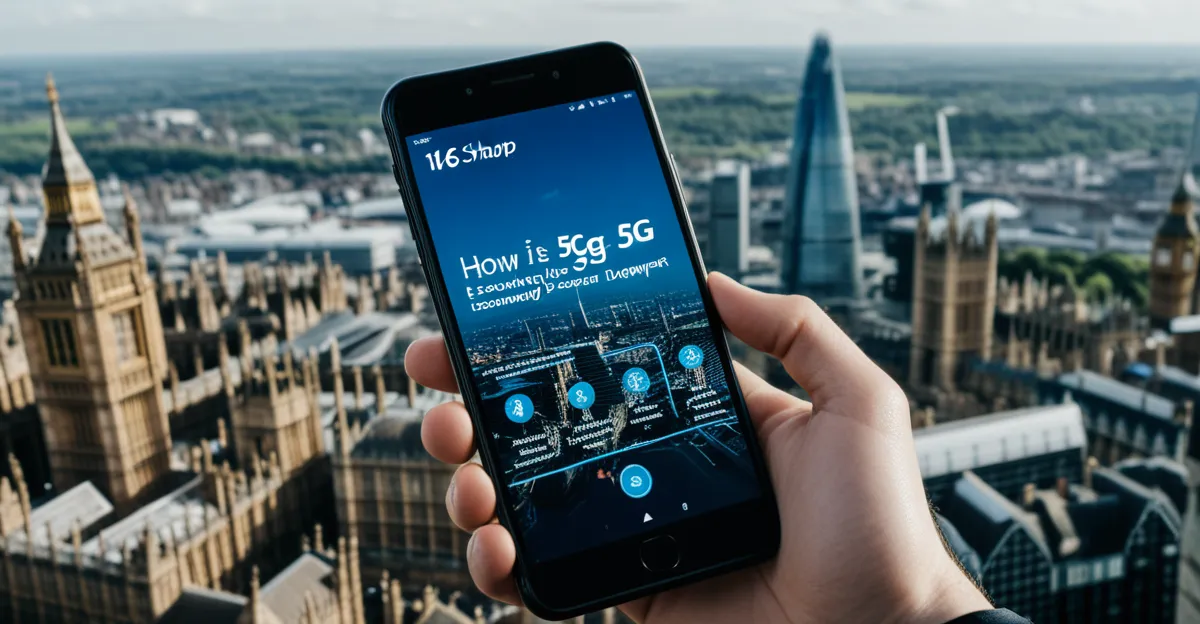UK Government Strategies and Investments in 5G
The UK government’s commitment to 5G UK policy is pivotal in shaping the country’s digital future. Central to this commitment is the national 5G strategy, which outlines clear objectives for accelerating 5G rollout nationwide. This strategy prioritizes collaboration among government agencies, industry stakeholders, and academic institutions to foster innovation and practical deployment.
A significant component of the government’s approach is substantial government investment directed at building robust 5G infrastructure. Funding initiatives, often in partnership with private sector players, aim to expand network coverage, particularly in underserved areas, ensuring equitable access across the nation. These investments are not merely financial but also include support for research and trials, establishing the UK as a leader in 5G technology development.
This might interest you : What Innovations are Reshaping UK’s Technological Landscape?
Regulatory frameworks have been thoughtfully designed to promote a dynamic environment for 5G innovation. These regulations address spectrum allocation, security considerations, and infrastructure sharing. By balancing oversight with flexibility, they encourage competitive markets while safeguarding public interests. The coordination between policy-making and regulatory bodies ensures that the national 5G strategy translates effectively into accelerated deployment and innovative applications.
Together, these government strategies and investments create a solid foundation for the UK’s 5G evolution, positioning it to reap the socio-economic benefits that this transformative technology promises.
This might interest you : What Are Emerging Challenges for UK Technology Startups?
Economic Sectors Accelerated by 5G Adoption
The 5G industry impact is profoundly transforming several key economic sectors across the UK, spurred by advancements in 5G technology and connectivity. One of the most visible transformations is in manufacturing modernisation, where 5G enables enhanced automation, real-time monitoring, and predictive maintenance. This results in significant productivity gains by reducing downtime and increasing operational efficiency through seamless machine-to-machine communication.
In healthcare, the deployment of 5G facilitates revolutionary improvements. The increased bandwidth and ultra-low latency allow for real-time remote patient monitoring, telemedicine consultations, and rapid data sharing between healthcare facilities. These advancements not only improve patient outcomes but also optimize resource allocation within the healthcare system.
Another sector that benefits immensely is smart transport and logistics. 5G networks support the integration of connected vehicles, intelligent traffic management systems, and automated warehousing solutions. These technologies enhance operational coordination, reduce delivery times, and increase safety through real-time data exchange, illustrating how 5G accelerates sector growth.
Collectively, these use cases demonstrate how targeted 5G implementations lead to measurable improvements across diverse industries, showcasing the UK’s growing reliance on 5G technology to drive economic expansion and competitiveness.
Real-World Case Studies of 5G-Driven Economic Growth
Real-world examples vividly demonstrate the economic impact of 5G deployment across the UK. Several cities and regions have pioneered UK 5G case studies showcasing substantial progress in connectivity and business innovation. For instance, metropolitan areas with advanced 5G infrastructure have witnessed accelerated digital transformation, attracting investment and fostering vibrant technology ecosystems.
British businesses leveraging 5G technology report notable business transformation outcomes. Enhanced network speeds and low latency enable companies to implement cutting-edge solutions such as augmented reality for retail, automated manufacturing lines, and advanced data analytics. These improvements translate into higher operational efficiency and new revenue streams.
Quantifiable outcomes from these case studies include job creation in tech sectors, increased productivity, and measurable economic value generation. For example, firms integrating 5G into their operations often report reduced downtime and enhanced supply chain management, directly contributing to sector growth. Such metrics affirm the pivotal role of 5G in driving sustainable economic development within the UK.
Expert Perspectives and Industry Analysis
Experts widely recognize the profound economic impact of 5G, highlighting its role as a critical driver of future growth. Through comprehensive 5G economic analysis, economists and technologists consistently emphasize how accelerated connectivity underpins digital transformation across industries. This technology’s potential to boost productivity, foster innovation, and open new markets is central to expert opinion.
Surveys and research further support these insights by providing measurable evidence of 5G’s benefits. For example, multiple studies detail how sector growth is closely linked to 5G adoption, showing increased efficiency and expanded capabilities in manufacturing, healthcare, and logistics. Industry insights reveal that organizations deploying 5G experience improvements in operational agility and customer engagement, validating projections of significant economic gains.
However, leading authorities also identify challenges accompanying this growth. Infrastructure costs, regulatory complexities, and cybersecurity concerns require strategic attention to maximize benefits. Nevertheless, these expert perspectives underscore that with continued public and private collaboration, 5G will remain a cornerstone of economic development, offering substantial opportunities for the UK.








